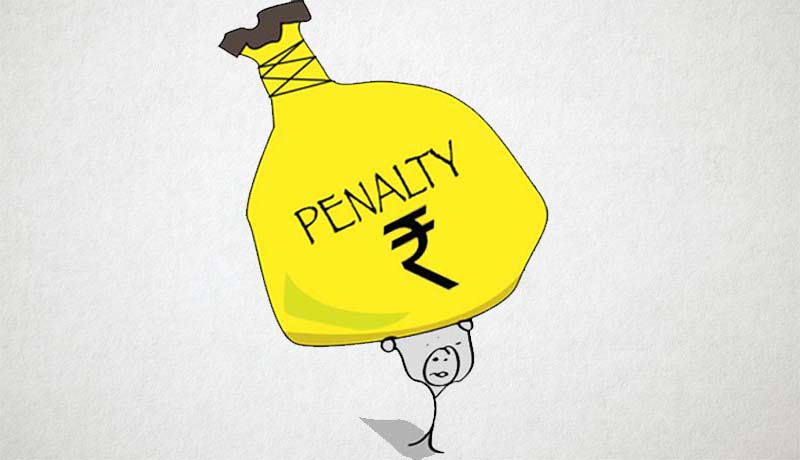Power to Impose Penalty u/s 47(6) of KVAT Act is not Absolute; Quantum of Penalty must be ascertained to the Gravity of Offence: Kerala HC [Read Judgment]

SEBI Penalty – penalty – ITAT
SEBI Penalty – penalty – ITAT
In a recent decision, the division bench of the Kerala High Court held that he power vested on the officer to impose penalty u/s 47(6) of the KVAT Act is not absolute and the officer cannot impose maximum penalty in all cases. The Court was considering a Writ appeal preferred by the Revenue against the order of the Single bench who reduced the penalty imposed on the assessee under the said section. While upholding the order of the Single bench, the Court emphasized that it is a settled provision of law that the power to impose penalty being quasi judicial in its effect and ambit, will, therefore, have to be exercised with great circumspection and that the quantum of penalty imposed should depend upon the gravity of the offence.
In the instant case, the Intelligence Officer detained the vehicle of the assessee on the allegation that it did not have the requisite documents under Section 46 of the Kerala Value Added Tax Act. Accordingly, the officer imposed a penalty of two-times of tax alleged to be evaded by the assessee u/s 47(6) of the KVAT Act. The first appellate authority confirmed the order. On second appeal, the Appellate Tribunal that in the absence of any positive material evidencing that the vehicle was brought to Kerala not for sale or transfer,imposition of penalty was not legally sustainable.
Referring to the decision in the case, Sudhi v.Intelligence Officer, Agricultural Income-tax and Sales Tax, the Court observed that a penalty can be levied only if there is fraudulent or other blame-worthy or objectionable conduct on the side of the assessee.
Regarding the power of the Single judge of the High Court in determining and reducing the quantum of penalty by analyzing the relevant facts of the case, it was held that “in the event there are sufficient reasons to show that the Assessing Officer and the other authorities had not considered the relevant materials and have not considered all the issues that are imperative for consideration in the facts and circumstances of the case and if the respondent was able to establish that his conduct was not fraudulent and that his omissions are not so grave so as to attract the maximum penalty, then it would be permissible, as has been done by the learned single Judge, to reduce the penalty even below the alleged amount of tax.”
With regard to the power vested on the officer to impose penalty, the bench comprising of Justice Thottathil B Radhakrishnan and Justice Devan Ramachandran observed that “It is perspicuous that Section 47(6) of the Act authorises the Officer concerned to impose a penalty not exceeding twice the amount of tax, but does not, in any manner, impose an obligation upon such Officer to impose the maximum penalty always. The discretion to impose penalty subject to a maximum of twice the amount of tax obviously gives to the Officer the power to impose such quantum as is warranted in the facts and circumstances of each case. The section does not prescribe a minimum quantum of penalty to be imposed but only mandates that the penalty so imposed would not exceed twice the amount of tax. It is, therefore, axiomatic that the Officers concerned are under a statutory obligation to exercise the discretion vested with them under the Statute in a manner that would answer the tests of fairness and appropriateness based on the culpability of the assessee as has been determined by due process.”
“A reading of Section 47(6) ineluctably leads to a conclusion that imposition of penalty can be based only on the establishment of guilt on the part of the assessee in attempting to evade tax. It is, therefore, axiomatic that once the intention to evade tax is established, penalty is to be imposed. The only question is how the discretion regarding the quantum has to be exercised. The Assessing Officer and the Appellate Authorities entered into the findings based on the guilt of the respondent and therefore, imposed the maximum penalty. However, the circumstances that would obviously mitigate the suspicion that was created against the respondent were not considered in its proper perspective.”
Read the full text of the Judgment below.


